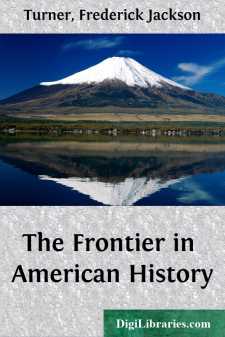History
- Africa 30
- Americas (North Central South West Indies) 50
- Ancient 68
- Asia 58
- Australia & New Zealand 8
- Canada 41
- Caribbean & West Indies 1
- Civilization 20
- Eastern Europe 12
- Europe 310
- Expeditions & Discoveries 60
- General 77
- Historical Geography 1
- Jewish 9
- Latin America 3
- Medieval 8
- Middle East 13
- Military 248
- Revolutionary 8
- Study & Teaching 5
- United States
- Western Europe 56
- World 13
United States Books
Sort by:
by:
Jacob Stroyer
CHAPTER I. My father was born in Sierra Leone, Africa. Of his parents and his brothers and sisters I know nothing. I only remember that it was said that his father's name was Moncoso, and his mother's Mongomo, which names are known only among the native Africans. He was brought from Africa when but a boy, and sold to old Colonel Dick Singleton, who owned a great many plantations in South...
more...
by:
Franklin Pierce
Fellow-Citizens of the Senate and of the House of Representatives: The interest with which the people of the Republic anticipate the assembling of Congress and the fulfillment on that occasion of the duty imposed upon a new President is one of the best evidences of their capacity to realize the hopes of the founders of a political system at once complex and symmetrical. While the different branches of...
more...
by:
Grover Cleveland
To the Congress of the United States: Your assembling is clouded by a sense of public bereavement, caused by the recent and sudden death of Thomas A. Hendricks, Vice-President of the United States. His distinguished public services, his complete integrity and devotion to every duty, and his personal virtues will find honorable record in his country's history. Ample and repeated proofs of the...
more...
Mr. Speaker, Mr. President, my colleagues in the Congress, our distinguished guests and my fellow Americans: To address a joint session of the Congress in this great Chamber in which I was once privileged to serve is an honor for which I am deeply grateful. The State of the Union Address is traditionally an occasion for a lengthy and detailed account by the President of what he has accomplished in the...
more...
by:
Martin Van Buren
Fellow-Citizens of the Senate and House of Representatives: We have reason to renew the expression of our devout gratitude to the Giver of All Good for His benign protection. Our country presents on every side the evidences of that continued favor under whose auspices it, has gradually risen from a few feeble and dependent colonies to a prosperous and powerful confederacy. We are blessed with domestic...
more...
To the Senate and House of Representatives: There are few transactions in the administration of the Government that are even temporarily held in the confidence of those charged with the conduct of the public business. Every step taken is under the observation of an intelligent and watchful people. The state of the Union is known from day to day, and suggestions as to needed legislation find an earlier...
more...
by:
James Monroe
Fellow-Citizens of the Senate and House of Representatives: At no period of our political existence had we so much cause to felicitate ourselves at the prosperous and happy condition of our country. The abundant fruits of the earth have filled it with plenty. An extensive and profitable commerce has greatly augmented our revenue. The public credit has attained an extraordinary elevation. Our...
more...
by:
Thomas Jefferson
Fellow Citizens of the Senate and House of Representatives: It is a circumstance of sincere gratification to me that on meeting the great council of our nation I am able to announce to them on grounds of reasonable certainty that the wars and troubles which have for so many years afflicted our sister nations have at length come to an end, and that the communications of peace and commerce are once more...
more...
PREFACE In republishing these essays in collected form, it has seemed best to issue them as they were originally printed, with the exception of a few slight corrections of slips in the text and with the omission of occasional duplication of language in the different essays. A considerable part of whatever value they may possess arises from the fact that they are commentaries in different periods on the...
more...
District Clerk's Office. (L. S.)Be it remembered, that on the sixth day of March, A. D. 1816, and in the fortieth year of the Independence of the United States of America, Rowe & Hooper, of the said District have deposited in this Office, the title of a book, the right whereof they claim as Proprietors, in the words following, to wit: "A Journal of a Young Man of Massachusetts, late a...
more...











